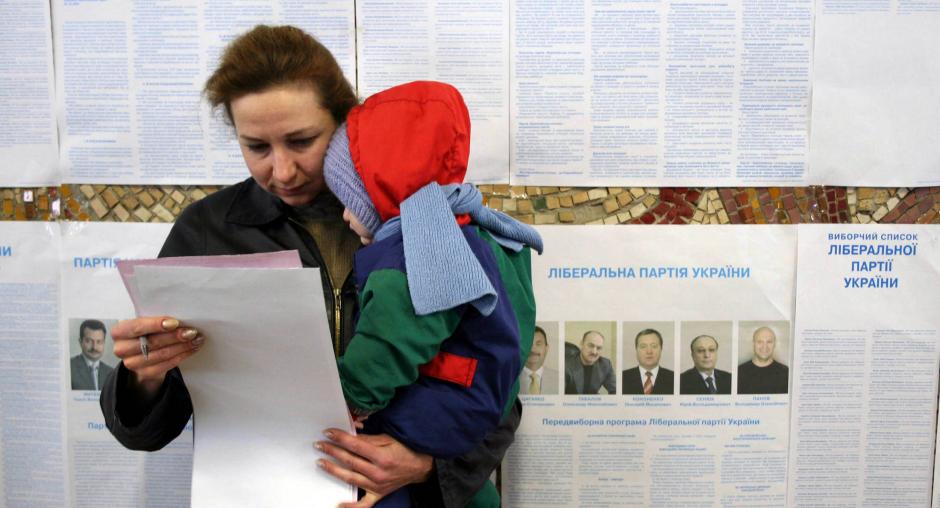Ukrainian elections free and fair, consolidating democratic breakthrough

KYIV, 27 March 2006 - The 26 March parliamentary elections in Ukraine further consolidated the breakthrough in the conduct of a democratic election process that began less than a year and a half ago. Overall, fundamental civil and political rights were respected. This enabled voters to make informed choices between distinct alternatives and to freely and fairly express their will, concludes the International Election Observation Mission in a statement released in Kyiv today.
The mission deployed over 900 observers, including 200 members of parliaments, from 45 countries to observe the elections.
"These elections can only be described as free and fair, and so it is the Ukrainian people who are the real winners," said OSCE PA President Alcee Hastings, appointed by the OSCE Chairman-in-Office as the Special Co-ordinator for the short-term observers.
Renate Wohlwend, Head of the delegation of the Parliamentary Assembly of the Council of Europe (PACE) and co-rapporteur for PACE's monitoring of Ukraine, said: "Despite serious technical failings, in a clear break with the past, all Ukrainians have demonstrated their commitment to the democratic process."
"The media coverage was generally balanced, even though in the last days of the campaign, political views of the owners became more evident. All in all, the parties and candidates were able to get their different messages across through a vibrant media, giving the people of Ukraine the possibility to freely make a political choice and express it", said Marek Siwiec, leader of the delegation of the European Parliament.
Pierre Lellouche, President of the NATO Parliamentary Assembly and head of its delegation, said: "The fairness and transparency of these elections confirms the irreversible changes in Ukraine's democratic transformation. The door to Euro-Atlantic integration remains open to Ukraine and it is up to its people to decide when is the appropriate time to take the next steps."
Lubomir Kopaj, Head of the OSCE ODIHR long-term Observation Mission, stressed the need for continued overhaul of voter lists and electoral legislation. "Ukraine has come a long way in just over one year. I urge the authorities not to lose momentum, now that we have seen what can be achieved. I hope that a serious case, described by our observers as deliberate fraud in Kirovograd, where local militia was observed directing the vote count, will remain an isolated incident."
The campaign was competitive and dynamic and was covered comprehensively by media. This enabled parties and blocks to communicate their messages to the voters. The election was administered in a transparent manner and the presence of a large number of both partisan and non-partisan observers further enhanced the transparency.
Problems in staffing polling station commissions, and an excessive number of voters in some polling stations, caused a degree of disorder on election day. There was a political will to overhaul and update voter lists, but a limited number of errors still remains.
Election day was peaceful, despite overcrowding observed in 30% of the polling stations. These delays were largely due to the simultaneous holding of general and local elections and further compounded by the large size of the ballot. Because of the delays, voting outside the polling booth was observed in 12% of cases, possibly compromising the secrecy of the vote. In spite of these sometimes stressful conditions, a vast majority of the polling station commissions conducted their work in a credible manner, with virtually no incidents recorded.
